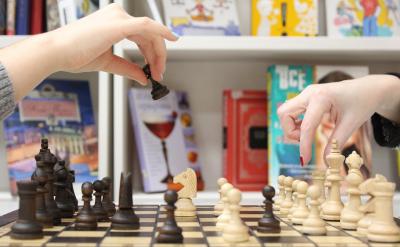人教版英語七下Unit5知識梳理、詞匯句式精講
【來源:易教網 更新時間:2024-06-13】
Unit 5單詞 (音標)
panda['p?nd?]n.熊貓
zoo [zu:] n.動物園
tiger['ta?g?(r)] n.老虎
elephant['el?f?nt] n.大象
koala [k??'ɑ:l?] n.樹袋熊;考拉
lion ['la??n] n.獅子
giraffe[d??'rɑ:f] n.長頸鹿
animal['?n?ml] n.動物
cute [kju:t] adj.可愛的;機靈的
lazy ['le?z?] adj.懶散的;懶惰的
smart [smɑ:(r)t] adj.聰明的
beautiful['bju:t?fl] adj.美麗的;美好的
scary ['ske?r?] adj.嚇人的;恐怖的
kind [ka?nd] n.種類
kind of 稍微;有點
Australia[?'stre?l??] n.澳大利亞
south [sa?θ] adj.南方的n.南;南方
Africa ['?fri:k?] n.非洲
South Africa南非
pet [pet] n.寵物
leg [leg] n.腿
cat [k?t] n.貓
sleep [sli:p] v.&n.睡覺
friendly ['frendli]adj.友好的
shy [?a?] adj.羞怯的;靦腆的
save [se?v] v.救;救助
symbol ['s?mbl] n.象征
flag [fl?g] n.旗,旗幟
forget [f?(r)'get] v.忘記;遺忘
get lost迷路
place [ple?s] n.地點;位置
water ['w?:t?] n.水
danger ['de?nd??(r)] n.危險
be in (great) danger處于(極大)危險中
cut [k?:t] v.砍;切
down[da?n]adv.(坐、躺、倒)下
prep.向下、沿著
cut down砍到
tree [tri:] n.樹
kill [k?l] v.殺死;弄死
ivory ['a?v?ri] n.象牙
over['??v?(r)]prep.超過;多于在……上方
(be) made of由……制成的
Julie ['d?u:l?]朱莉(女名)
Becky ['beki]貝姬(女名)
Thailand ['ta?l?nd]n.泰國
Thai [ta?] n.泰國(人的);泰語(的)
Unit5 知識梳理
【重點短語】
1. importance in Thailand 在泰國的重要性
2. Let’s see…. first. 讓我們先看...
3. favorite animals 最喜歡的動物
4. kind of interesting 有點有趣
5. South Africa 南非
6. be from =come from 來自
7. be smart 聰明的
8. walk on two legs 用兩條腿走
9. all day/all night 整天 /整夜
10. a good name for her 對于她是個好名字
11. like …a lot 非常喜歡......
12. black and white 黑白相間
13. You’re right. 你是正確的。
14. one of +名詞復數 (......其中之一)
15. our first flag 我們的第一面旗
16. a symbol of good luck 好運的象征
17. draw well 畫得好
18. forget to do 忘記做某事
19. get/be lost 迷路
20. places with food and water有食物和水的地方
21. be in great danger 處于危險
22. cut down 砍倒
23. over = more than 超過/多于
24 be made of... 由…制成
25.Thai Elephant Day 大象節
【重點句型】
1. —Let's see the pandas first. They're my favorite animals.
咱們先看熊貓吧,我最喜歡熊貓了。
—Why?
為什么?
—Because they’re very cute.
因為它們非常可愛。
2. Why do you want to see them?
你為什么想看它們?
3. He can walk on two legs.
他(指“狗”)會立著行.
4. —Why don’t you like the cat?
你為什么不喜歡這貓?
—Well,because she's kind of boring, she sleeps all day.
因為她有點兒令人乏味,并且整天都在睡覺
5. —Why don't you like tigers?
你為何不喜歡老虎?
—Because they're really scary.
因為它們確實可怕。
6. —Where are lions from?
獅子來自什么地方?
—They're from South Africa.
他們來自南非。
7. But I like tigers a lot.
但我非常喜歡老虎。
8. Our first flag had a white elephant on it.
我們的第一面國旗上就繪著一頭白象!
9. People say that “an elephant never forgets. ”
人們說大象從來不會忘記。
10. Elephants can walk for a long time and never get lost.
大象能夠長時間行走,而且不迷路。
11. But elephants are in great danger.
但是大象面臨巨大的危險。
12. We must save the trees and not buy things made of ivory.
我們必須拯救樹木,拒買象牙制品。
【話題寫作】:本單元以動物話題,描述自己喜歡的動物及原因。
寫作題目:根據下面表格的內容,以A Trip to the Zoo寫一篇60詞左右的短文介紹一下動物園新來的兩只動物。
優秀滿分范文:
A Trip to the Zoo
Welcome to the zoo. There are two new animals. The panda’s name is Feifei .She is from China .She likes eating bamboo. She is lovely and shy. She is only two years old. The other animal is a lion .His name is Karl. He is from Africa. He likes eating meat. He is very dangerous and strong. He is three years old .We all like them.
Unit5 詞匯講解
1. cute
cute形容詞,“聰明的,可愛的”,多指小動物聰明可愛,也可以指小女孩聰明伶俐,招人喜愛。
例如:The panda is very cute. 熊貓很可愛。
拓展: cute, smart與clever 的區別
2. beautiful
beautiful 形容詞,“漂亮的,好看的”相當于good-looking,在句中常作定語或者表語。其反義詞是 ugly“丑陋的”,其名詞為beauty,意為“美人,美麗”。例如:
We saw a beautiful girl. 我們看到一個漂亮的女孩兒。
The music sounds beautiful. 音樂聽起來很優美。
3. kind
(1)kind 作可數名詞,意為“種類,類別,類型”,常與of連用構成短語,常見的有:
a kind of (一種); different kinds of (不同種類的);all kinds of (各種各樣的); 這些短語后可以接不可數名詞或可數名詞的單數或復數。
例如: The supermarket sells all kinds of goods.
超市出售各種各樣的商品。
(2)kind 作形容詞,意為“友好的,善良的”,be kind to sb. 表示“對某人(友)好。例如:
The old woman has a kind heart. 那位老人有一顆善良的心。
Our teacher is kind to us. 我們老師對我們很好。
(3)kind of 是非常口語化的表達方式,意為“有點兒,稍微”,用來修飾形容詞。相當于a little/bit, 也可以單獨使用。例如:
That made me feel kind of nervous. 那使我感到有點兒緊張。
She is kind of shy. 她有點害羞。
4. south
(1)south 作名詞,意為“南,南方,南部”,前面常加the。例如:
Guangzhou is in the south of China. 廣州在中國的南部。
(2)south 作形容詞, 意為“南方的”,常用作定語。例如:
South China 華南 South Africa 南非 South America 南美洲
拓展:可以用來表示方位的名詞還有
east(東), west(西), north(北), southeast (東南)southwest(西南), northwest (西北), northeast (東北)。
5. sleep
(1)sleep作動詞,意為“睡,睡覺”,指睡,睡著的全過程,強調睡眠的持續狀態,后面可以跟副詞或者介詞。例如:
Don’t cry, the baby is sleeping. 別哭,那個嬰兒在睡覺。

I can’t sleep because of the noise. 嘈雜聲吵得我睡不著覺。
Did you sleep well last night? 你昨晚睡得好嗎?
(2)sleep 做名詞,意為“睡覺,睡眠”,常為不可數名詞。但sleep前面有形容詞時,可在前面加上 a (an), 表示“一段……睡眠”。詞組go to sleep意為“入睡,睡著”。例如:
I need to have some sleep. 我需要睡一會兒。
Did you have a good sleep last night? 你昨天晚上睡得好嗎?
(3)asleep和 sleepy 都是sleep的形容詞形式。asleep 表示“睡著的”,屬于表語形容詞,詞組fall asleep意為“睡著”;sleepy意為“困倦的,想入睡的”,既可以作定語也可以作表語。例如:
He fell asleep soon. 他很快睡著了。
I’m very sleepy. 我很困。
6. friendly
friendly 是由名詞friend + -ly 構成的形容詞,意為“友好的”。其反義詞為unfriendly,意為“不友好的”。例如:
Chinese people are very friendly. 中國人民很友好。
類似的構詞還有:
love + -ly——lovely 可愛的
mother + -ly —— motherly 母親般的
week + -ly —— weekly 每周的
拓展:
(1)be friendly to sb. 意為“對……友好”,指對別人態度好,熱情;相當于“be kind to sb.”。例如:
My classmates are all friendly to me. 我的同學對我都很友好。
(2)be friendly with 意為“和……關系好/ 與……要好”,指的是兩者的關系。例如:
The classmates in our class are friendly with each other.
我們班上的同學相互關系都很好。
7. save
(1)save 動詞,在本單元意為“拯救,救助”,后接名詞或者代詞作賓語。save one’s life意為“挽救某人的生命”。例如:
He saved the boy’s life. 他救了那個男孩的命。
(2)save 還可意為“儲蓄,儲存”。例如:
He saved a lot of money to buy a house. 他存了很多錢為了買房子。(3)save 還可以意為“節約,節省”。例如:
Please save water. 請節約用水。
8. forget
forget 動詞,意為“忘記,遺忘”,作及物動詞時意為“忘記”,其后可以直接跟名詞作賓語,也可以跟動詞不定式或者動名詞;作不及物動詞時意為“遺忘東西”。它的反義詞是 remember,形容詞是forgetful。例如:
Let’s forget the bad past! 讓我們忘記糟糕的過去吧!
I’ve forgotten about it. 我已經忘記這件事了。
Don’t forget to bring me an umbrella. 別忘了給我帶把傘。
拓展:forget 和 leave的區別
forget不與表示地點的介詞短語連用,只是表示忘記,但不具體表明將某物忘在了什么地方。例如:
Sorry, I forget my key. 抱歉,我忘了帶鑰匙了。
leave 常與表示地點的介詞短語連用,表示“將某物忘在某地”。例如:
I left my key in my office. 我把鑰匙落在辦公室了。
9. danger
(1)danger 名詞,意為“危險”,be in (great) danger 意為“處于(極大地)危險中”;out of danger 意為“脫離危險”。例如:
We must save the animals in great danger.
我們必須拯救處于滅絕中的動物。
The doctor says that he is no longer in danger.
醫生說他已經脫離危險。
The man is out of danger now. 那個人已經脫離危險。
(2)danger 的形容詞是dangerous, 意為“危險的”,反義詞是safe,意為“安全的”。例如:
He is dangerous. 他是個危險人物。
The river is dangerous for swimmers.
對于游泳者來說,這條河是危險的。
10. cut
(1)cut 動詞,意為“砍,切”,只用帶刃兒的工具將物體分開,可以接簡單的賓語也可以接雙賓語,其間接賓語也可以轉化成介詞for的賓語。例如:
Please cut Lily the cake. = Please cut the cake for Lily.
請幫莉莉切蛋糕。
(2)cut down 是固定詞組,意為“砍倒”,指自根基部分砍倒某物。cut down 還可以表示“削減;縮小(尺寸或數量等)”,后接介詞to或者on構成的短語。例如:
People should stop cutting down so many trees.
人們應該停止大量砍倒樹木。
We need to cut the article down to 1,000 words.
我們得把這篇文章壓縮到1,000字。
11. over
(1)over 為介詞,有“超過,多于”的含義,相當于more than。例如:
There are over 50 students in our class, 在我們班里有50多名學生。
(2)over作介詞還可以表示“在……上方”。例如:
There is a bridge over the river. 河上有座橋。
(3)over作副詞, 表示“完了,結束”。常作表語。例如:
Class is over. 下課了。
(4)常見的over構成的短語有:
go over 檢查 all over 遍及,整個
over and over 反復 over there 在那邊
12. lost
(1)lost 作為形容詞, 意為“走失的,迷路的,失散的”或者“丟失的,遺失的”;常與系動詞be或者get連用,表示“丟失,走失,迷路”。
“get lost”表示“迷路時”相當于lose one’s way。例如:
The boy got lost. = The boy lost his way. 那個男孩迷路了。
My keys are lost again. 我的鑰匙又丟了。
(2)lost經常用于名詞前作定語修飾名詞。例如:
a lost child 走丟了的孩子 a lost watch 被人遺失的手表
(3)lost 是動詞lose的過去式和過去分詞;動詞lose有“遺失; 失去”的含義,lose one’s home 意為“失去家園”。例如:
The flood made thousands of people lose their homes.
洪水使成千上萬的人失去了家園。
練一練:
Ⅰ. 英漢互譯。
1. 其中之一_________
2. 砍倒_________
3. lose one’s home_______
4. 瀕臨滅絕_________
5. kind of _______
6. 各種各樣的 ________
7. get lost _______
8. 黑白相間_______
9. 南非________
10. 一整天_______
Ⅱ. 根據句意和首字母提示補全單詞。
1. W______ to the zoo. There are many animals here.
2. This is my f______ journey by air. How excited I am!
3. She is a b______ girl with golden hair.
4. The baby is s______ enough to work the problem out.
5. The p______ like eating bamboo and they’re black and white.
6. Don’t f______ we’re going to the theatre tonight.
7. I want to see monkeys because they’re k_____ of cute.
8. People can’t live without w______.
9. Let’s s______ the animals in great danger.
10. There are o______ 2,000 students in our school.
Ⅲ. 用括號中所給單詞的適當形式填空。
1. Her______ (friend) are very ______ (friend) to us.
2. Don’t let ______ (he) stand over there, please.
3. It’s _______ (danger) to play soccer in the busy street.
4. The baby is _____ (sleep). Don’t wake her up.
5. Mr. Brown has two ______ (child).
6. Let him______ (go) to the zoo with us, will you?
7. I think elephants are ______ (interest) animals.
8. Does the lions live in ______ ( African)?
9. Some of us ______ (like) reading.
10. Don’t forget ______ (practice) playing the guitar.
Ⅳ.選詞填空。
A.從括號中選擇適當的詞填在橫線上。
1. A panda is ______ animal, and the lion is ______ cute. (kind of, a kind of)
2. She doesn’t like tigers because they are _______ (cute, scary).
3. Lucy, a ______(13 years old, 13-year-old) girl, is my new pen pal.
4. Don’t ______(cut off, cut down)so many trees.
5. Remember ______ (bring, to bring) your pens next time.
B. 從方框中選擇合適的詞填空。
shy, friendly, kind, scary, cute
6. The parrot is very______. She can talk.
7. I don’t like lions because I think they’re ______.
8. -How ______ your daughter is! -Thank you.
9. The girl is very ______. She doesn’t like to speak to others.
10. We Chinese are very ______ to others.
參考答案
I. 英漢互譯。
1. one of 2. cut down
3. 失去某人的家園 4. be in (great) danger
5. 有點 6. all kinds of
7. 迷路 8. black and white
9.South Africa 10. all day
Ⅱ. 根據句意和首字母提示補全單詞。
1. Welcome 2. first 3. beautiful
4. smart 5. pandas
6. forget 7. kind 8. water
9. save 10. over
III. 用括號中所給單詞的適當形式填空。
1. friends, friendly 2. him
3. dangerous 4. sleeping
5. children 6. go 7. interesting
8. Africa 9. like 10. to practice
Ⅳ.選詞填空。
A. 1. a kind of, kind of 2. scary
3. 13-year-old 4. cut down 5. to bring

B. 6.cute 7. scary 8. kind
9. shy 10.friendly
Unit5 重點句型解析
1. Let’s see the pandas first.
(1)本句是一個祈使句,句式為“Let’s do sth.”意為“讓我們……吧。”主要用來提出建議和請求, 勸對方一起做,包括聽話者在內。
它的否定式是“Let’s not do sth.”,意為“讓我們不做某事”。例如:
Let’s play games together. 我們一起做游戲吧。
Let’s not tell anyone. 我們誰也別告訴。
(2)“Let us do sth.” 意為“讓/允許 我們做某事”,表示提出請求,請對方允許,不包括聽話者在內。例如:
Let us go with you, my dear mother.
親愛的媽媽,讓我們和你一起去吧。
拓展:常見的其他表示建議的句式
1) Shall we…? 我們……好嗎?例如:
Shall we go out for a walk? 我們一起去散步好嗎?
2)How about/What about…? ……怎么樣?例如:
How / What about listening to the music? 聽音樂怎么樣?
3)Why don’t you…? / Why not…? 為什么不……呢?例如:
Why don’t you go swimming? = Why not go swimming?
為什么不去游泳呢?
2. Why do you like pandas?
(1)本句是why引導的特殊疑問句,用來詢問原因;它的句式是“Why + be動詞/ 情態動詞/ 助動詞 + 主語 + 動詞?”。意為“為什么做……”。這個句式常用because引導的句子來回答。
because是連詞,表示直接的理由。例如:
-Why is he here? 他為什么在這兒?
-Because he has things to do. 因為他有事要做。
-Why do you study English?你為什么學英語?
-Because it’s important. 因為它很重要。
(2)why還可以表示建議,常用于句型“Why not + do sth.?或 Why don’t you + do sth.?”意為“為什么不……?”。例如:
Why not go out for a walk? = Why don’t you go out for a walk?
為什么不出去散步呢?
(3)why 可以做感嘆詞,表示吃驚、不耐煩或輕微的抗議、反對及猶豫等不同的語氣。例如:
Why, don’t you know me?
啊,難道你不認識我嗎?
Why, it’s easy-a child could do it!
嗨, 這容易的很,連小孩子都會做!
3. We must save the trees and not buy things made of ivory.
(1)made是make 的過去分詞,made of ivory意為“由象牙做成的”,在句子中做后置定語修飾things。類似這樣的用法還有:
the boy called Tom 叫湯姆的那個男孩 (called是call的過去分詞,作后置定語修飾the boy)
(2)be made of 意為“由……制成”,從制成品能看出原材料。例如:
The kite is made of paper. 這個風箏是用紙做的。
(3)be made from 意為“由……制成”,從制成品看不出原材料。例如:
The paper is made from wood and bamboo.
紙是由木頭和竹子制造的。
4. Isn’t she beautiful?
(1)本句是一個否定疑問句。否定疑問句通常以be動詞、情態動詞或助動詞與not的縮寫形式開頭,意思是“難道……不……嗎?”,可以表示說話者驚異的情緒、責難的口吻或贊嘆;也可以表示說話者的某種建議、邀請或者看法等。例如:
Aren’t you an American? 難道你不是個美國人嗎?
Can’t you play football? 你難道不會踢足球嗎?
(2)否定疑問句的回答與一般疑問句的回答一樣,凡是與事實相符的用Yes,不相符的用No。但在翻譯時,要將Yes 翻譯作“不”,將No翻譯作“是的”;這一點和漢語不同。例如:
-Doesn’t she want to go? 她難道不想去嗎?
-Yes, she does. 不,她想去。
-No, she doesn’t. 是的,她不想去。
5. Where are they from?
(1)此句是where引導的特殊疑問句,即“Where + be + 主語+ from”句型,回答時,介詞from后跟表示國家、城市等的地點名詞。對Where 引導的特殊疑問句我們應該根據實際情況作出回答。
(2)介詞from意為來自,be from = come from 意為“從……來,來自”。“be from”構成的句式,否定句疑問句等句式的變換或者時態的變化由be來實現。
“come from”構成的句式,各種句式或者時態的變化要用come或者助動詞等來實現。例如:
I am from Shanghai. = I come from Shanghai.
我來自上海。
Are you from Shanghai? = Do you come from Shanghai?
你來自上海嗎?
She isn’t from Shanghai. =She doesn’t come from Shanghai.
她不是來自上海。
練一練:
Ⅰ. 情景對話,每空一詞。
A: What are you going to do next Sunday?
B: I don’t know. 1 2 you?
A: I 3 to go to the zoo.
B: Good idea! What 4 do you like?
A: I like giraffes.
B: 5 ?
A: Because they’re very friendly and cute.
B: 6 you want to see the giraffes first.
A: That’s right.
B: What 7 animals do you like?
A: I like dolphins, 8 .
B: Why?
A: Because they’re 9 10 interesting.
1._____ 2._____ 3._____ 4._____ 5._____
6._____ 7._____ 8._____ 9._____ 10._____
Ⅱ. 句型轉換,每空一詞。
1. I want to see the lions because they are cute. (就劃線部分提問)
______ ______ ______ want to see the lions?
2. Pandas are from China. (就劃線部分提問)
______ ______ pandas from?
3. This girl is a little shy. (改為同義句)
This girl is _____ _____ shy.
4. Why not listen to some light music? (改為同義句)
______ ______ ______ listen to some light music?
5. My mother likes giraffes. (改為一般疑問句)
_______ ______ mother ______ giraffes?
6. Pandas come from China. (改為同義句)
Pandas ______ ______ China.
7. I like monkeys. They are interesting. (合并為一句)
I______ ______ _______ _______ interesting.
8. Nancy likes giraffes. (改為否定句)
Nancy ______ _______ giraffes.
9. are, in, the, zoo, cute, very, animals (連詞成句)
________________________________
10. What other animals do you like? (改為同義句)
______ ______ do you like?
Ⅲ. 根據漢語意思,完成句子,每空一詞。
1. 我妹妹最喜歡的動物是熊貓。
My sister’s _______ ________ are pandas.
2. 大象是泰國的標志之一。
The elephant is _______ _______ Thailand’s ________.
3. 他們為什么看著我?
_______ are they ______ ______ me?
4. 她喜歡和她的中國朋友玩。
She likes to ______ ______ her Chinese friends.
5. 拉里非常懶惰,通常每天睡14個小時。
Larry is very______, and he usually sleeps 14 hours ______ _____.
6. -難道熊不可愛嗎? -不,可愛。
-______bears cute?- ______, they ______.
7. 咱們先去看考拉吧。
______ go to see the koalas_____.
8. 人們說“大象從來不會忘記”。
People ______ that “an elephant ______ ______.
9. 你為什么不喜歡看書呢?
_______ _______ _______ like reading books?
10. 我們一定要拯救樹木并且不買象牙制品。
We must ______ the trees and not _______ things ______ ______ ivory.
IV.用所給動詞的正確形式填空(必要時可加助詞)
At the moment,we are getting ready for Spring Festival.We(1)_______(clean)the house and we(2)_______(sweep)the floor.My mother(3)_______(cook)a meal and my father(4)________(decorate)the house.My sister(5)________(watch)TV.Usually we(6)_________(buy)clothes,but we(7)_________(not buy)any clothes this New Year.We always(8)________(get)presents from our family and friends.The New Year Festival(9)________(finish)at The Lantern Festival,and we often(10)________(eat)round rice dumplings called yuanxiao.
參考答案
Ⅰ. 情景對話,每空一詞。
1. What/ How 2. about
3. want 4. animals 5. Why
6. So 7. other 8. too
9. kind 10. of
Ⅱ. 句型轉換,每空一詞。
1. Why do you 2. Where are
3. kind of 4. Why don’t you
5. Does your, like 6. are from
7. like monkeys because they’re
8. doesn’t like
9. Animals in the zoo are very cute.
10. What else
Ⅲ. 根據漢語意思,完成句子,每空一詞。
1. favorite animals 2. one of, symbols
3. Why, looking at 4. play with
5. lazy, every day 6. Aren’t, Yes, are
7. Let’s, first 8. say, never forgets
9. Why don’t you 10. save, buy, made of
IV.用所給動詞的正確形式填空(必要時可加助詞)
1.are cleaning 2.ale sweeping
3.is cooking 4.is decorating
5.is watching 6.buy

7.don't buy 8.get
9.finishes 10.eat
 搜索教員
搜索教員

最新文章

熱門文章
大家都在看
- 岳老師 尚無職稱等級
- 印教員 美國新英格蘭音樂學院 小提琴演奏
- 肖教員 北京航空航天大學 人工智能
- 劉教員 吉林師范大學博達學院 小學教育
- 金教員 北京郵電大學 公共事業管理
- 卓教員 上海工程技術大學 金融學
- 馬教員 中國傳媒大學 廣告學
- 譚教員 四川外國語大學成都學院 漢語言文學
- 付教員 商洛學院 護理學
- 張教員 中國地質大學(北京) 計算機科學與技術
